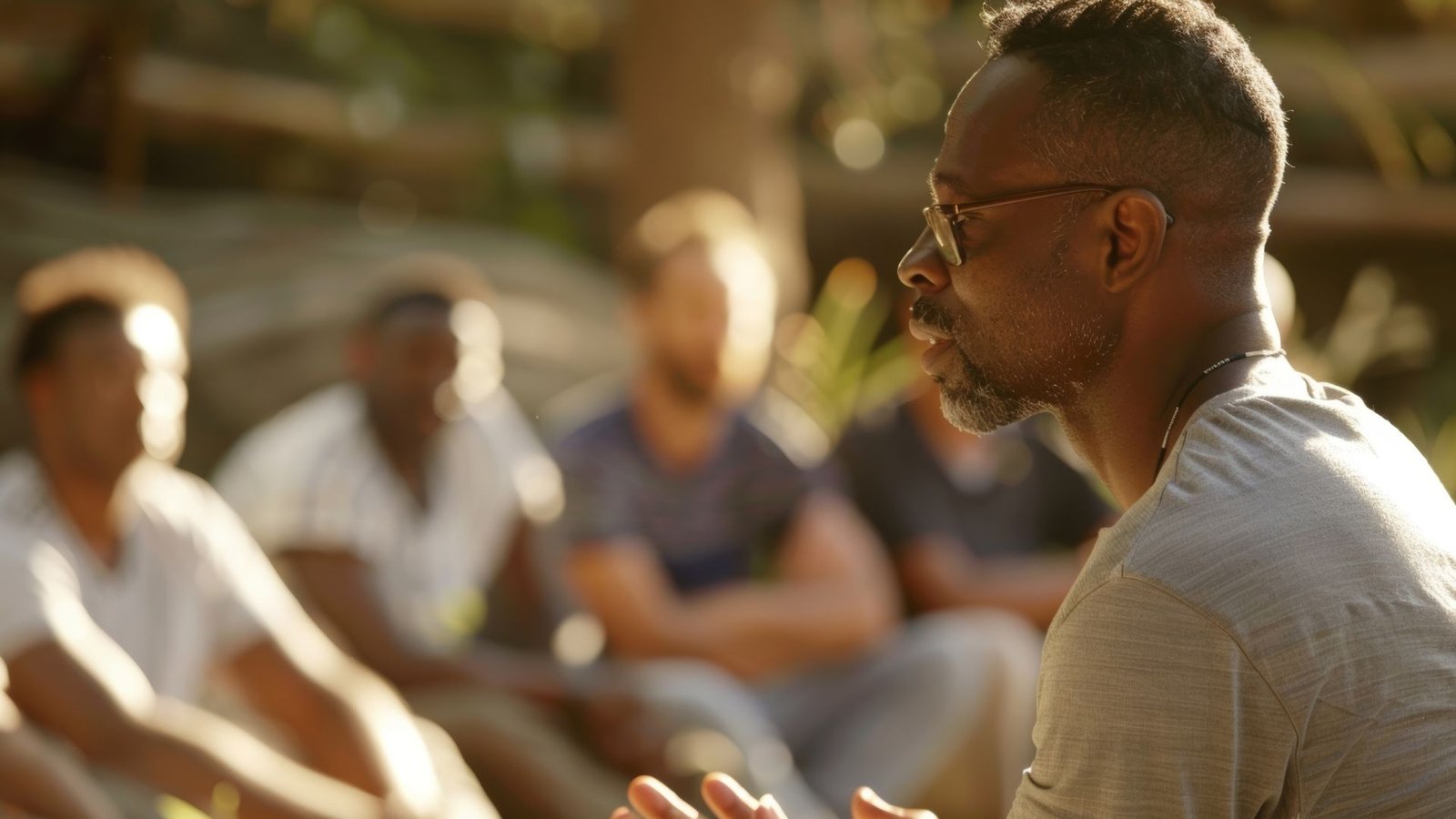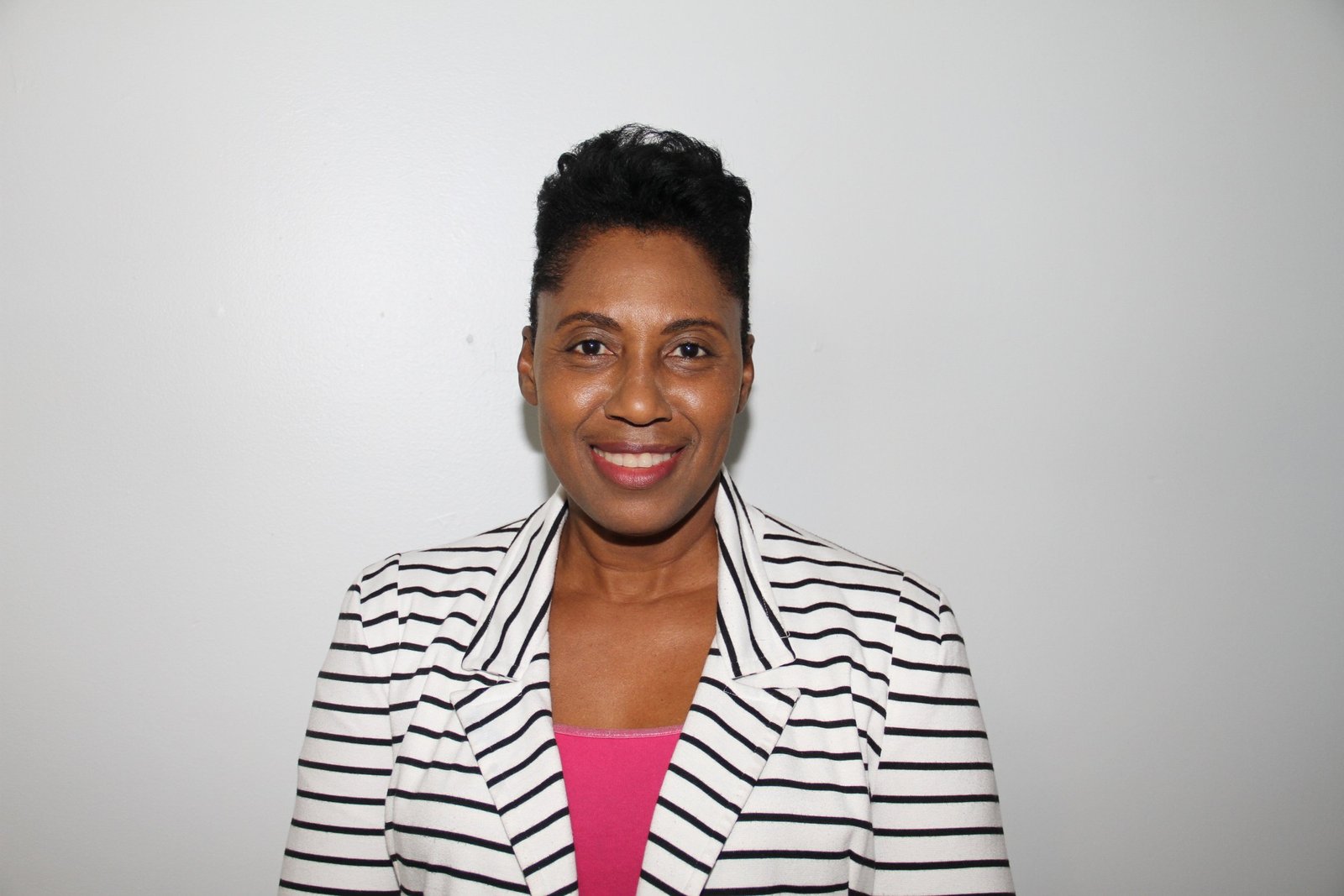Choose Your Path

3-Day Becoming Method® Intensive Training

RN-Psychotherapist Program
🕒 6–8 Months
On-line + Live 3-Day Intensive
For Registered Nurses including NPs, CNSs & PSWs
Apply Now


🕒 6–8 Months
On-line + Live 3-Day Intensive
For Registered Nurses including NPs, CNSs & PSWs
Apply Now


Next Cohort: Jun 20-Jun 22
By submitting your email address, you acknowledge and agree to becominginstitute.ca Terms of Service and Privacy Policy.
Each training format is designed to meet your team where they are—whether you’re introducing trauma-informed care for the first time, deepening existing practices, or addressing a crisis of burnout.

Ignite Awareness. Open Hearts. Begin the Shift.
Ideal for: staff town halls, team kick-off meetings, leadership retreats, conferences and wellness events, and DEI or wellness initiatives looking to go deeper.
🎯 Purpose:
This session is designed to spark meaningful dialogue and introduce the principles of trauma-informed care in a way that is accessible, moving, and deeply relevant to today’s care environments.
It’s perfect for organizations beginning their trauma-informed journey—or those looking to re-engage teams through fresh insight and emotional resonance.
📚 Sample Topics:
Why Trauma-Informed Systems Matter Now An overview of how trauma—individual, vicarious, and systemic—affects organizations, and what a trauma-informed shift can achieve.
The Hidden Cost of Caring: Understanding Compassion Fatigue Unpacks how caring for others exposed to trauma can become overwhelming, and what care teams can do to protect their emotional bandwidth while still showing up fully.
Regulating the Regulator: Emotional Safety in High-Stress Roles A practical look at nervous system regulation for leaders, managers, and frontline staff tasked with holding space for others.
Key Outcomes:
By the end of the session, your team will:

Lay the Foundation. Learn the Tools. Shift the Culture.
Ideal for:
Professional development sessions, team meetings, or onboarding refreshers. This format works well for organizations ready to go beyond awareness and begin building concrete trauma-informed skills.
Purpose:
This session introduces participants to foundational trauma-informed concepts, alongside one key skill or framework they can begin using right away.
It’s designed to support team-wide alignment, reduce reactivity, and increase emotional awareness across roles and departments. Whether delivered as part of ongoing training or a one-time initiative, this session offers high value with immediate, practical relevance.
Breakdown of Sample 2-Hour Session
Begin with The Science of Trauma and the Nervous System—a grounding introduction to how trauma impacts the brain and body, and why understanding stress responses is essential for creating emotionally safe environments.
From there, we move into How to Stay Grounded When Others Are Triggered, a practical skill-building module that helps staff recognize emotional activation in themselves and others, while staying centered and effective.
Finally, we offer Micropractices for Burnout Prevention, where participants learn and try out simple, evidence-based techniques they can use in the moment to reduce overwhelm, restore balance, and protect their long-term emotional capacity.
Key Outcomes:
By the end of the session, participants will:

Deepen Insight. Strengthen Connection. Practice the Shift Together.
Ideal for:
Team retreats, cross-departmental collaborations, professional development days, or strategic realignments where culture, communication, and emotional sustainability are front of mind.
Purpose:
This half-day workshop offers teams the opportunity to move beyond theory and into meaningful application. It provides a shared learning experience where staff reflect, practice, and build trauma-informed skills together—across roles, power dynamics, and professional boundaries. Designed to support both individual growth and collective transformation, this session encourages teams to reconnect with their purpose, their people, and their capacity to care in sustainable ways.
Participants will engage with real workplace scenarios, explore emotionally intelligent practices, and begin to co-create a common language for responding to stress, trauma, and relational ruptures with greater clarity and compassion.
Breakdown of Sample 3.5-Hours Session
We begin with Becoming Trauma-Informed: Skills for Helping Professionals, a foundational exploration of what it means to practice care through the lens of trauma awareness.
Participants learn the key principles—safety, trust, choice, collaboration, and empowerment—and begin identifying how these show up (or are missing) in their own day-to-day work.
Next, we turn to Emotional Safety at Work: Boundaries, Triggers, and Repair. In this module, teams reflect on the subtle and overt ways trauma impacts workplace dynamics.
Participants develop greater awareness of their own emotional boundaries, learn to identify personal and team-based triggers, and are introduced to practical repair processes that restore connection and trust after rupture.
We conclude with Co-Regulation in Teams: Leading from Center—a skill-building experience designed to help participants understand the power of emotional presence and energetic leadership.
Staff and leaders alike explore techniques to anchor themselves, model calm under pressure, and contribute to a workplace culture where nervous system safety is valued and protected.
Key Outcomes:
By the end of this workshop, teams will:

Transform Culture. Repair Systems. Reimagine What’s Possible.
Ideal for:
Teams undergoing transition, organizations recovering from crisis or collective trauma, and leaders ready to move from burnout culture to a foundation of emotional safety and healing.
Purpose:
This immersive workshop is designed for organizations that are ready to do deep, meaningful work. Through guided reflection, trauma-informed education, and practical integration, we create space for collective healing and renewal—while building the capacity to lead lasting change.
Over the course of a full day, teams engage in honest dialogue about how trauma—personal, professional, generational, and systemic—has shaped their workplace. We work together to explore what needs to be released, what wants to be repaired, and what’s possible when we lead from a place of wholeness. This is not just a training—it’s a reset.
Breakdown of Sample 6-7 Hours Session
We begin with Trauma-Informed Leadership in Action—a deep exploration of what it means to lead with presence, courage, and compassion.
Participants reflect on their own leadership tendencies, learn the neuroscience behind emotionally intelligent leadership, and identify the difference between control-based and care-based influence.
Next, we step into Healing the System While Working in It. This session invites participants to name the systems that have shaped them—healthcare, social services, education, racialized institutions—and begin to locate their own power within those structures. With guidance, we explore how to support healing in environments that are still under strain.
The day concludes with Organizational Practices that Prevent Burnout, a practical and visionary module where teams assess their current culture and co-create a roadmap for resilience. We examine what needs to change—at the policy, communication, and team norms level—to build a workplace that protects people, honours purpose, and sustains care over time.
Key Outcomes:
By the end of this experience, your team will:
From PSWs to Nurse Practitioners and Clinical Nurse Specialists, we tailor every session to match your team’s scope of practice, clinical environment, and care pressures.
Whether you’re addressing burnout, improving emotional safety, or building leadership capacity, we design training that resonates with real nursing challenges—moral distress, vicarious trauma, boundary strain, and team dynamics.
We also consult with nursing leadership and HR to align training with wellness goals, retention strategies, and interdisciplinary team cohesion.
We provide targeted support for the individuals who keep your system running smoothly.
Social workers navigate layered trauma—personal, familial, systemic—often while advocating within systems that are under-resourced and overstretched.
Our trainings are designed to support that reality. Whether your team is in child welfare, mental health, housing, or community care, we focus on boundary integrity, emotional sustainability, and trauma-informed practice rooted in justice and compassion.
We also consult with program leads and HR teams to align training with goals around service quality, DEI commitments, and emotional risk management.
We understand that those who hold space for others deserve space to breathe, reflect, and heal.
Community health teams sit at the intersection of care and complexity—often serving populations impacted by trauma, poverty, racism, and marginalization.
Our training acknowledges this reality. Whether your team includes nurses, outreach workers, case managers, or allied health staff, we tailor sessions to strengthen trauma-informed communication, emotional regulation, and client engagement across cultural and systemic barriers.
We also consult with HR and leadership to embed trauma-informed principles into supervision, client flow, and interdisciplinary care practices.
When care happens at the margins, your staff need tools that center presence, not pressure.
Leaders set the tone, especially in trauma-exposed systems. Yet few are trained to lead from a place of emotional clarity, nervous system awareness, and relational intelligence.
Our sessions are designed to help executive directors, senior managers, and board leaders understand the impact of trauma on team dynamics, decision-making, and organizational culture. We introduce frameworks for trauma-informed leadership that support accountability, reduce reactivity, and promote sustainable change from the top down.
We also consult with leadership teams to align training with strategic objectives—improving retention, restoring team cohesion, and embedding trauma-informed values into governance, operations, and supervision practices.
We go beyond staff wellness. We focus on supporting you as you lead a dynamic system with the potential to heal itself.
Crisis and first responders carry the weight of urgency, unpredictability, and exposure to trauma—often with little time to process, recover, or recalibrate.
Our training addresses the specific demands of these high-intensity roles. Whether your team includes paramedics, outreach workers, harm reduction staff, shelter responders, or mobile crisis units, we focus on nervous system regulation, split-second stress management, and emotional boundary-setting in volatile environments.
We also support leadership teams in embedding trauma-informed practices into staff supervision, debriefing protocols, shift transitions, and organizational wellness strategies.
Your staff have the soft skills—we focus on helping them regulate so they show up ready when things are falling apart.
For Colleges, Universities & Nursing Schools
Whether you’re enhancing your current nursing curriculum or building an entirely new credentialing pathway, we offer the level of support that fits your institution’s goals, timeline, and internal capacity.
Our starting point—move students from generalists to specialists as RN–Psychotherapists.
Most BScN programs offer one to two mental health courses and optional psychiatric placements. These typically focus on assessment, crisis intervention, brief counselling, or suicide prevention. While valuable, they are not designed to prepare nurses for the specialized, regulated practice of psychotherapy.
The RN–Psychotherapist is a specialist role. It requires fluency in counselling theory, advanced therapeutic use of self (SEUS), and the ability to respond to trauma across biological, psychological, spiritual, and systemic dimensions. Preparing nurses for this work demands more than new content—it requires a shift in how institutions think about scope of practice, program design, and faculty delivery.
What We Do
We partner with your academic team to assess and map your current curriculum against the competencies required for the RN–Psychotherapist role—aligned with both CRPO and CNO standards.
Then, we use this process to open a broader strategic conversation about institutional capacity.
We help you determine:
🎯 How your current courses support—or fall short of—psychotherapy-specific learning outcomes
🎯 What additional courses, sequencing, and practicum structures are required
🎯 Whether your faculty are equipped (or can be supported) to deliver psychotherapy-related instruction
🎯 Which delivery model makes the most sense (post-grad certificate, CE microcredential, full credentialing pathway)
🎯 How to scaffold long-term capacity—faculty, systems, supervision, and partnerships—to sustain and scale this work
What You Get
🔐 A comprehensive curriculum map aligned to CNO and CRPO competencies
🔐 A detailed gap analysis identifying content, faculty, and structural needs
🔐 Sample course outlines and program structure scenarios
🔐 A capacity-readiness assessment to inform strategic planning
🔐 Actionable recommendations—whether you choose to build independently, co-design, or license a credentialing model
Why It Matters
This isn’t about adding another mental health elective. It’s about equipping nurses to practice psychotherapy ethically, effectively, and within scope—and preparing your institution to lead in a space where trauma-informed care, regulatory alignment, and workforce development intersect.
Curriculum mapping is the first step in building the internal readiness to offer something both meaningful and sustainable.
Ideal For
Colleges and universities exploring an RN–Psychotherapist training pathway and seeking a clear, grounded assessment of both program content and institutional readiness.
Turn your vision into a working program—supported by internal faculty who are ready to lead.
Once your institution has completed curriculum mapping and capacity assessment, the next step is building out a formal program structure: course outlines, delivery models, teaching strategies, and practicum pathways. But a program is only as strong as the people who deliver it.
This tier focuses on collaborative program design—paired with targeted faculty development to ensure your internal team has the knowledge, confidence, and pedagogical tools to deliver trauma-informed psychotherapy education.
What We Do
We work alongside your curriculum and academic leadership teams to co-develop the scaffolding of your RN–Psychotherapist training stream, while equipping your faculty and clinical supervisors to teach and lead within it.
We help you:
What You Get
Why It Matters
Many institutions underestimate what it takes to bridge from curriculum concept to actual delivery. This tier ensures you’re not just mapping a vision—but building a team and structure that can sustain it long term.
For institutions seeking flexibility, this is also the tier where we explore co-delivery or licensing options—allowing you to offer a program under your banner while leaning on our established expertise.
Ideal For
Schools that have completed curriculum mapping and are ready to move toward full program implementation—with the option to build independently or in partnership.
“Powered by the Becoming Institute” — Deliver a regulator-aligned RN–Psychotherapist training stream through your institution.
For institutions ready to lead in nursing and mental health innovation, our co-branded delivery model offers a rigorous, field-tested program built specifically for the nursing profession—delivered in collaboration with your post-graduate or continuing education division.
The Becoming Institute’s 16-week RN–Psychotherapist Credentialing Program is fully mapped to the College of Nurses of Ontario (CNO) psychotherapy guidelines and aligned with the CRPO Entry-to-Practice competencies for Registered Psychotherapists. The program is further supported by an optional 8–12 week early-career placement stream for new and mid-career nurses.What Sets This Program Apart
🎯 Designed by nurses, for nurses—with an emphasis on the unique role of psychotherapeutic nursing in clinical, community, and systems-based practice
🎯 Grounded in evidence-based psychotherapy frameworks including trauma-informed care, narrative therapy, and somatic approaches
🎯 Developed by a multi-disciplinary faculty team including social workers, nurses, registered psychotherapists, psychologists, and healthcare system leaders
🎯 Built with academic integrity, incorporating instructional design principles and adult learning theory
Seamless Integration with Your Infrastructure
The program is delivered on Brightspace, Canada’s leading post-secondary LMS, making integration with your institutional system smooth and familiar for both learners and faculty.
A customized Memorandum of Understanding (MOU) governs all aspects of program delivery—from academic roles to communication pathways—allowing for clarity, accountability, and shared success.
What You Get
🔐 Immediate access to a regulator-aligned, academically sound training program
🔐 Co-branded delivery and collaborative instructional roles, tailored to your faculty capacity
🔐 Program delivery via Brightspace, with full onboarding support
🔐 Optional practicum and placement pathways
🔐 An MOU-based partnership that supports scalability, quality assurance, and long-term vision
Why It Matters
Developing a new credentialing pathway takes time, expertise, and regulatory fluency. This model offers your institution a way to lead with credibility and confidence—while minimizing development burden and accelerating impact.
Whether as a pilot or long-term offering, this is your opportunity to deliver a best-in-class RN–Psychotherapist training program with a trusted academic partner.
Ideal For
Universities and colleges with established CE or post-graduate divisions looking to expand their credentialing offerings for nurses through a co-delivered, regulator-aligned model.
Deliver the RN–Psychotherapist Credentialing Program under your full academic ownership.
For institutions seeking to independently offer a psychotherapy credential for nurses—without starting from a blank slate—we offer a licensed delivery model. This option grants your institution full access to The Becoming Institute’s complete, regulator-aligned curriculum, along with implementation guidance and long-term support for quality assurance.
You retain full control over instruction, faculty engagement, and learner delivery—while drawing from a field-tested, academically sound program that meets both CNO and CRPO expectations.
A Turnkey, Evidence-Based Program—Ready for Internal Delivery
🎯 Built by nurses, for nurses, with input from psychotherapists, psychologists, social workers, and system leaders
🎯 Developed using instructional design best practices, grounded in adult learning theory and trauma-informed pedagogy
🎯 Fully mapped to the CNO psychotherapy guidelines and the CRPO Entry-to-Practice competencies
🎯 Includes all course outlines, teaching materials, evaluation rubrics, and program design documentation
Institutional Autonomy, Expert Support
Your team delivers the program—on your platform, under your brand—with optional implementation support and mentorship from the Becoming Institute during your first delivery cycle.
This model supports full academic integration, allowing your institution to:
🔐 Customize instructional delivery using your internal faculty
🔐 Embed the credential into your existing continuing education or post-grad frameworks
🔐 Align the program with institutional strategic plans around mental health, interprofessional education, or health equity
What You Get
📦 Full access to all curriculum, course materials, and program frameworks
📦 Licensing agreement tailored to your delivery model and internal structure
📦 Faculty orientation materials and optional mentorship
📦 Quality assurance check-ins to support integrity in adaptation and delivery
📦 Option to scale offerings for internal cohorts, external learners, or regional partners
Why It Matters
Developing a high-stakes credentialing program for a regulated role is complex. This model allows your institution to lead with confidence—delivering a high-impact, trauma-informed, and regulator-ready program from day one.
With the Licensed Delivery Model, you gain credibility, accelerate implementation, and retain full academic control—while knowing your foundation is strong.
Ideal For
Universities and colleges with the internal capacity to deliver a psychotherapy credential independently and the desire to lead the next generation of nursing education.

In just 12 Months, start your new career as a Certified Trauma Recovery Specialist.

🎓 Authors of Ontario’s leading RN–Psychotherapist Credentialing Program
🎓 Deep knowledge of CRPO, CNO, and PCC regulatory frameworks
🎓 Specialization in trauma recovery, adult education, and clinical supervision
🎓 Proven results in community health, education, and public systems

Dr. Joan Samuels-Dennis, Ph.D. is a nationally recognized leader in psychotherapeutic innovation and models of mental health service delivery. With more than 25 years of experience across public and community health, advanced clinical practice, education, and trauma-informed psychotherapy, she brings the kind of interdisciplinary insight institutions need to lead in an evolving mental health landscape.
Dr. Samuels-Dennis is the founder of The Becoming Institute and the developer of The Becoming Method®, a holistic trauma recovery model that integrates biological, psychological, spiritual, and systemic approaches to healing. Her work focuses on bridging regulatory expectations with practical, evidence-based training that prepares nurses to deliver psychotherapy safely, ethically, and effectively.
As the architect behind Canada’s first RN–Psychotherapist Credentialing Program, she supports colleges and universities in designing programs that are regulator-aligned, clinically relevant, and academically rigorous. Her expertise includes curriculum mapping, faculty development, and the creation of scalable delivery models that work within institutional structures.
Our service delivery model is a structured and collaborative process that meets institutions where they are. Through tailored consultation, curriculum development, and implementation support, Dr. Samuels-Dennis and the Becoming team help academic leaders build credible, regulator-aligned programs that are both pedagogically sound and operationally sustainable.
For institutions ready to expand their capacity to train nurse–psychotherapists, she offers a path forward that is thoughtful, evidence-informed, and grounded in practical realities.
Here’s what sets us apart:

Our trainings are built by clinicians, educators, and system leaders who’ve worked on the front lines of trauma recovery in hospitals, communities, and public systems. We understand what your teams are facing—because we’ve lived it, too.

All offerings are grounded in The Becoming Method®—a proprietary, research-informed model of trauma recovery and system healing that integrates:
🔬 Neuroscience and nervous system regulation
🔬 Narrative and identity transformation
🔬 Emotional safety and cultural humility
🔬 Practical tools for both individual and organizational change

No cookie-cutter content here. We tailor every talk, training, and consulting engagement to your team’s culture, stressors, and goals—whether you’re in acute care, education, public health, or social services.

We specialize in developing trauma-informed practices and training pathways that align with:
💼 The College of Nurses of Ontario (CNO) standards for psychotherapy within nursing scope
💼 The College of Registered Psychotherapists of Ontario (CRPO) Entry-to-Practice competencies
💼 Public health mandates, equity-centred care frameworks, and strategic workforce development priorities
We work with

🩺 Hospital nursing teams
🩺 Primary care networks & family health teams
🩺 Long-term care and palliative care providers
🩺 Community-based health centres

🧠 Youth mental health and wraparound care agencies

🏛️ Systems transformation initiatives

🎓 Curriculum developers & clinical educators

🧑🤝🧑DEI and mental health leads
Real stories from real practitioners who transformed their practice—and their lives—through the Becoming Method™.
Meet Your Instructors—Global Experts Bringing Depth, Insight, and Practical Experience

Faculty, Becoming Institute | Registered Psychotherapist | Creative Healer Advocate for LGBTQ+ and BIPOC mental health, integrating evidence-based therapy with art, mindfulness, and somatic care to foster resilience and belonging

Founder, Becoming Institute | Creator of the Becoming Method™ Thought Leader in Trauma Recovery and Holistic Mental Health. Internationally recognized for transforming psychotherapy through a powerful blend of science, spirituality, and social justice

Faculty, Becoming Institute | Registered Psychotherapist | Somatic Coach & Relational Healer | Trauma-Responsive Educator Blending science and soul to nurture connection, clarity, and embodied presence

Faculty, Becoming Institute | Registered Psychotherapist | Founder, Karkiu Psychotherapy | Clinician and educator guided by trauma-informed, culturally sensitive, and feminist frameworks—committed to building authentic, secure relationships

Faculty, Becoming Institute | Co-Founder, Winrose Oasis Counselling Trauma-informed therapist and clinical leader integrating cultural humility, community care, and intergenerational healing across psychotherapy, supervision, and education

Faculty, Becoming Institute | Executive Director, Manitoba Alliance of Health Regulatory Colleges Social work leader and educator integrating equity, business strategy, and trauma-informed care to advance healing, empowerment, and systems change across sectors

Faculty, Becoming Institute | Co-Founder, Winrose Oasis Counselling Culturally rooted therapist and wellness advocate blending clinical practice with spiritual healing to support intergenerational trauma recovery, emotional wellness, and community resilience

Faculty, Becoming Institute | Clinical & Counselling Psychologist Integrative psychologist with 15+ years of global clinical experience, blending evidence-based therapies with relational and systemic care to support individual, couple, and family healing
The RN–Psychotherapist Credentialing Program is designed to align with both the College of Nurses of Ontario (CNO) psychotherapy guidelines and the Entry-to-Practice Competency Profile of the College of Registered Psychotherapists of Ontario (CRPO). While CRPO does not formally “recognize” or “endorse” third-party programs, we have built the curriculum to ensure it prepares nurses to safely and ethically enter the field of psychotherapy within their scope of practice.
What this means for your institution is that the program reflects current regulatory standards, supports readiness for registration with CRPO (if pursued by the graduate), and prepares nurses to deliver psychotherapy in accordance with both nursing and psychotherapeutic codes of conduct. Our curriculum includes core competencies such as theoretical knowledge of psychotherapeutic modalities, advanced SEUS (therapeutic use of self), trauma-informed care, and clinical supervision—all foundational to competent, accountable practice.
We maintain a proactive relationship with current regulatory guidance and update the program as standards evolve.
We partner with a range of post-secondary and health-focused institutions that are seeking to expand their mental health training capacity, particularly in relation to trauma-informed care and psychotherapeutic practice.
These include:
✅ Colleges and universities with nursing or interdisciplinary health programs
✅ Continuing education departments exploring new certificate pathways
✅ Faculties of health sciences or social work seeking program innovation or regulatory alignment
✅ Clinical education units supporting staff development and applied learning
✅ Organizations building workforce development programs in partnership with community or public health agencies
Our consulting and curriculum development services are flexible enough to support institutions at various stages of readiness—whether you’re updating a single course, launching a new credentialing stream, or considering long-term co-delivery through a licensed model.
We also work with institutions looking to prepare faculty, align with CRPO/CNO standards, or meet specific health workforce and equity goals.
Yes. Flexibility is built into every tier of our service model, and we recognize that no two institutions have the same resources, goals, or starting point. Whether you’re looking to build a post-graduate certificate, enhance an existing mental health stream, or co-deliver a full RN–Psychotherapist Credentialing Program, we tailor our support to fit your academic, operational, and strategic context.
We offer:
✅ Curriculum mapping to align your current offerings with regulatory standards
✅ Modular content that can be integrated into your LMS and adapted to your scheduling needs
✅ Customizable practicum models to match your local placement capacity
✅ Train-the-trainer options to build internal faculty readiness
✅ Branded or co-branded delivery options for institutions seeking visibility or partnership
From course outlines to program structures and evaluation tools, our team works with yours to ensure the content is contextually appropriate, academically sound, and regulator-aligned.
Ultimately, you retain full control over how the program is delivered and integrated—our role is to extend your internal capacity, not replace it.
The delivery of an RN–Psychotherapist Credentialing Program requires faculty who bring both clinical expertise and a foundational understanding of psychotherapeutic practice. However, we understand that many nursing and health programs are still developing this internal capacity—which is why faculty support is a key part of our service model.
Ideal faculty may include:
✅ Nurses with advanced practice experience and a strong interest in psychotherapy
✅ Registered psychotherapists, psychologists, or social workers with experience in trauma-informed care
✅ Interdisciplinary educators familiar with SEUS (the therapeutic use of self), mental health, or trauma recovery models
We provide:
✅ Train-the-trainer intensives grounded in trauma-informed pedagogy and The Becoming Method®
✅ Faculty onboarding support to align instructional delivery with CRPO and CNO standards
✅ Co-teaching and mentorship options during the first delivery cycle, if needed
✅ Ongoing consultation as your team builds confidence in teaching psychotherapy within a nursing framework
Our goal is not to overwhelm your current faculty—but to extend their knowledge, build comfort with the material, and support long-term instructional leadership within your team.
Timelines depend on your institution’s starting point, internal resources, and the depth of support you’re seeking. That said, we typically see institutions move through development and readiness in three phases:
Phase 1: Curriculum Mapping & Capacity Assessment (2–3 months)
We evaluate your existing program, identify gaps, and provide a roadmap for alignment with CRPO and CNO standards. This phase includes course recommendations, faculty readiness review, and delivery model planning.
Phase 2: Program Design & Faculty Preparation (4–6 months)
We co-develop or adapt course materials, support LMS integration (e.g., Brightspace), and facilitate train-the-trainer sessions. This stage may also include pilot planning, partnership building for placements, and regulatory alignment check-ins.
Phase 3: Program Delivery or Pilot Launch (timeline varies)
Institutions may choose to run a pilot cohort, deliver a CE-based offering, or launch a full credentialed pathway. We remain available during this phase to support implementation, troubleshoot challenges, and ensure fidelity to learning outcomes.
Depending on your model—whether standalone, co-branded, or licensed—the full development and rollout can range from 6 to 12 months. We work with your timeline and help you set milestones that balance quality, sustainability, and speed to delivery.
The discovery call is a no-obligation, 30–45 minute consultation designed to help your team explore whether our services align with your institutional goals.
During the call, we typically:
✅ Learn about your current program structure, vision, and pain points
✅ Share an overview of our tiered consulting and curriculum support model
✅ Discuss regulatory considerations (CRPO, CNO) and how they apply to your context
✅ Identify opportunities for alignment, partnership, or phased development
✅ Answer any technical or strategic questions you may have
The goal is to start a thoughtful conversation about what’s possible. By the end of the session, you’ll have a clearer understanding of how our team can support yours—and what the next steps would look like if we proceed together.
We also follow up with a tailored summary that outlines potential pathways, estimated timelines, and scope of support—so you can make an informed decision internally.
Traditional mental health or psychiatric nursing programs typically focus on assessment, medication management, crisis intervention, and brief therapeutic interactions. These are essential skills—but they do not prepare nurses for the regulated practice of psychotherapy.
The RN–Psychotherapist Credentialing Program goes further. It is designed specifically to equip nurses with the theoretical knowledge, clinical frameworks, and applied skills required to deliver psychotherapy as defined by the College of Nurses of Ontario (CNO) and the College of Registered Psychotherapists of Ontario (CRPO).
Key distinctions include:
✅ Foundational training in psychotherapeutic modalities (e.g., relational, somatic, narrative, trauma-focused)
✅ Advanced development of SEUS (the psychotherapeutic use of self)
✅ Deep integration of trauma-informed, anti-oppressive, and spiritually responsive care
✅ Structured clinical practicum hours with supervision aligned to CRPO expectations
✅ Curriculum explicitly mapped to CNO’s psychotherapy guidelines and CRPO’s Entry-to-Practice Competency Profile
This program prepares nurses not only to “support mental health” but to practice as psychotherapists—safely, ethically, and within their scope of practice under Ontario’s regulatory framework.
By submitting your email address, you acknowledge and agree to becominginstitute.ca Terms of Service and Privacy Policy.



Introduction to Psychotherapy


Mindful Fitness: SelfHealing Practices for Psychotherapists


Forgiveness & Holistic Trauma Recovery


Ubuntu: African & Indigenous Ways of Knowing & Being


Introduction to Psychotherapy


Mindful Fitness: SelfHealing Practices for Psychotherapists


Forgiveness & Holistic Trauma Recovery


Ubuntu: African & Indigenous Ways of Knowing & Being